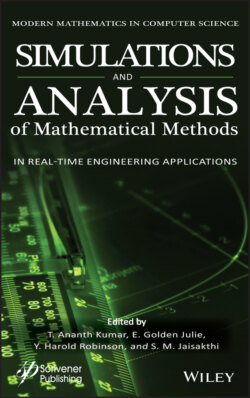Читать книгу Simulation and Analysis of Mathematical Methods in Real-Time Engineering Applications - Группа авторов - Страница 30
2
Edge Computing Optimization Using Mathematical Modeling, Deep Learning Models, and Evolutionary Algorithms
ОглавлениеP. Vijayakumar*, Prithiviraj Rajalingam and S. V. K. R. Rajeswari
ECE Department, SRMIST, Kattankulathur, Chennai, India
Abstract
The rapid growth of the Internet of Things (IoT) with advanced applications requires high speed and real-time computing power. Edge computing brings the computation of data closer to the machine where it is being collected. It leads to a decrease in latency, bandwidth usage, and resources for the server and its cost. The significant challenges in edge computing are 1) optimal offloading decision making, 2) resource allocation, 3) Meeting Quality-of-Service (QoS) and Experience (QoE). This chapter addresses the above challenges using mathematical models, Deep Learning and the Evolutionary algorithm. The deep learning algorithm solves the highly complex problem by developing a model from the training data or observation (reinforcement learning). The deep learning approach converts the optimization problem of edge computing into classification or regression or intelligent decision-making problems and solves them. The Evolution algorithm finds an optimum solution for the given problem through the natural process of evaluation, which is used to solve the edge computing multi-optimization problem. An evolution algorithm like a genetic algorithm and ant colony can solve a few research problems of edge computing like task scheduling.
Keywords: Edge computing, deep learning, machine learning, evolutionary algorithm
